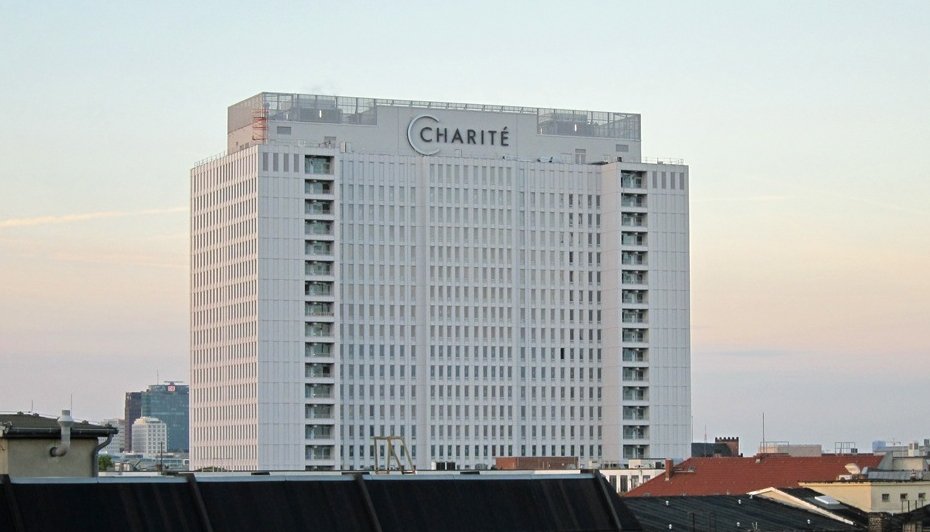Berlin is the vibrating capital of Germany and offers diversity, adventure and excellent education and career options to those who move there. No wonder that many international students who are looking to get trained as medical physicians in Germany are looking for options in Berlin specifically. This article will spare you some research of your own and provide you with an overview on:
Which options do I have to study medicine in Berlin? Which requirements do I need to fulfill in order to get admission?
The following article might hold a bit of a surprise to you: Given the size of Berlin, you may expect to have lots of options to train to become a medical doctor in Berlin. In fact, however, there is only one option to train to work as a doctor in Berlin, and that is by studying at the Charité - Universitätsmedizin Berlin (which is the medical university of Berlin). We will present to you everything a prospective student needs to know about studying at the Charité in Berlin. If the Charité is not for you, however, we will also point you to some alternatives in and around Berlin that might be worth considering, as well.
Germany’s largest medical school: the Charité - Universitätsmedizin Berlin
© INTERRAILS. Type of license: CC BY-SA 4.0.
The Charité - Universitätsmedizin Berlin, which translates to university medicine Berlin, is an institution that combines a hospital, research and medical training. As such, it is a typical representative of the way that the German health care system, medical training and research are structured. You can read more about this in our article on medical universities in Germany.
Institutional structure of the Charité
You may now wonder: What is the Charité? A hospital, a research center or a medical faculty that offers study programs? The answer is that it is a bit of everything. The Charité is the joint medical faculty of the Freie Universität Berlin and the Humboldt-Universität zu Berlin. It has nearly 100 different departments and institutes, which are located on four campuses throughout the city of Berlin and organized in 17 CharitéCenters.
Connected to the medical faculty is a university hospital - that means a clinic in which cutting-edge research is conducted, in which aspiring doctors and medical professionals are trained, but which also treats patients. The Charité university hospital covers all areas of modern medicine and comprises around 100 different clinics and departments.
At the Charité research centers, a wealth of innovative and internationally regarded research is conducted and translated to patient care. The broadness of research groups and projects cannot be summarized in this article, but you can find more about the research foci of the Charité here. As their main areas of expertise, the website of the Charité lists cardiovascular research & metabolism, infection, immunology & inflammation, rare diseases & genetics, oncology, regenerative therapies and neuroscience.
Course structure of the medical studies at Charité
The Charité also offers medical study programs. One of them is a medical study program that ends in the state examination (German: Staatsexamen) and thus leads to an approbation to practice as a physician in Germany. It is one of the medical faculties in Germany which offer a so-called model study program (German: Modellstudiengang), a revised curriculum to study medicine in Germany.
The modell program at Charité allows for the integration of new learning concepts and practical training early on into the study program. As one of the most striking differences to the regular study structure that most universities in Germany follow, the program at the Charité integrates practical elements and patient treatment into all stages of the training. It thus offers an especially attractive curriculum for students looking for practical experiences throughout their studies. More information can be found here (only in German).
Application and admission requirements to study medicine at Charité
Study spots at the Charité are very popular and therefore highly competitive. Like all other medical study programs, it is nationally restricted so that certain application conditions apply for applicants who got their A-Levels within the EU, Liechtenstein, Norway, Iceland or at one of the German schools abroad.
Applicants from this group need to:
- Apply using the platform hochschulstart.de.
- 30% of applicants are admitted based on their high school GPA.
- 10% of spots are allocated in the additional quota, e.g. to students who performed well in the medical study aptitude test (TMS), working as a medical professional, etc.
- 60% of spots are allocated by the Charité directly. They consider the following criteria in their decision:
- High school GPA (20%).
- Results of the medical study aptitude test (TMS, 60%).
- Special qualification, such as internships, extracurricular activities or trainings that are relevant for medical studies (20%).
You can find more information about the application process for students from the EU, Liechtenstein, Norway, Iceland or from one of the German schools abroad here.
International students from outside the EU apply to study medicine at the Charité using uni-assist. 5 % of all study spots (this means around 16 spots for around 500 international applicants) are reserved for this group and allocated based on the GPA students obtained throughout their secondary school education. In the last years, international applicants needed a GPA of 1.0 in the German system, this means straight As. You can find a detailed guide for this group of applicants here.
Like all medical study programs, the course in Berlin is taught in German only, therefore, all international applicants need to prove that they have sufficient German skills on a C1 level. To proof this, the Charité accepts the following documents:
Deutsche Sprachprüfung für den Hochschulzugang
DSH II or III
Welcome@FU refugee program German language certificate
C1
Deutsche Sprachdiplom Stufe
DSD II
Goethe-Zertifikat
C2
Test Deutsch als Fremdsprache
TestDaF (TDN 4 in all exam components)
The European Language Certificate
telc Deutsch C1 Hochschule
Other than the language certificate, another formal requirement that applicants need to fulfill is to have a secondary school leaving certificate that is considered equal to the German A-Levels. Most applicants from outside the EU do not fulfill this requirement and therefore need to visit the Studienkolleg.
While the formal requirements are relatively easy to understand (secondary school leaving certificate, potentially Studienkolleg, and sufficient German skills), it is important to mention that the application to the Charité in Berlin is very competitive. To have a realistic chance, you will need outstanding grades and for EU applicants practical experiences and good results in the TMS.
Studienkolleg in Berlin
If you need to go to a Studienkolleg, which is a preparatory year that gets international students ready to visit a university in Germany, depends on where you got your high school diploma. As a general rule, most students from outside the EU have to visit a Studienkolleg in Germany before they can start their university studies. Find out if you have to go to a Studienkolleg before you can start your medical studies in Germany on this website!
To be able to study medicine at a German university, you need to visit the M-Course at a Studienkolleg. Students who are looking to study medicine in Berlin can visit the M-Course offered by the Studienkolleg of the Freie Universität Berlin. Applicants apply via uni-assist. The Studienkolleg also holds the opportunity to improve your German skills. Therefore, admission is possible with a B2 level.
The course ends with the so-called Feststellungsprüfung, an assessment test which upon successful completion qualifies you to study medicine in Germany. Note that passing the Feststellungsprüfung does not guarantee you a spot to study medicine.
Other program options at the Charité
For everyone interested in medical subjects but not looking to work as a doctor, as well as for students who cannot meet the competitive admission requirements to study medicine in Berlin or who do not possess German language skills, the Charité offers other degree programs.
In 2007, the Berlin School of Public Health (BSPH) was founded within the Charité structures and as of now works as a cooperation of the Charité - Universitätsmedizin Berlin, the TU Berlin and the Alice Salomon Hochschule Berlin. The BSPH offers a series of bachelor’s and master’s programs, some of which are also available in English, such as in epidemiology, public health or neurosciences. You can find more information in our StudyFinder.
Other institutions in Berlin to study health sciences or medicine
While the Charité is the only (public) institution in Berlin that offers training to become a doctor, there are other universities (exclusively private) that offer bachelor’s and master’s programs in health sciences or medicine:
These state accredited private schools do not offer training to become a doctor, but some German-language bachelor’s and master’s programs in medical fields. Many of these programs are designed for people who already work in a medical profession.
Another alternative is studying Healthcare Management in Berlin (see all Masters):
- At a public university:
- Technical University of Berlin: e.g. M.Sc. Health Systems and Research and Management.
- At private universities:
- Hochschule Fresenius - University of Applied Sciences: e.g. M.Sc. International Pharmacoeconomics Health Economics & Market Strategies for Healthcare Products,
- SRH Berlin University of Applied Sciences: e.g. MBA International Healthcare Management.
Alternatives to Charité: Medical universities in the Berlin Metropolitan Area
If you have your heart set on studying medicine to become a doctor in Berlin but cannot get admission to the Charité, there are some universities near Berlin that may allow you to live in Berlin and commute to your studies. We have two examples of private universities located closely to Berlin listed here for you:
- Medizinische Hochschule Brandenburg Theodor Fontane (MHB),
- HMU Health and Medical University Potsdam.
For English language options to study health sciences in Berlin, you can use our StudyFinder to get an overview over your choices:















